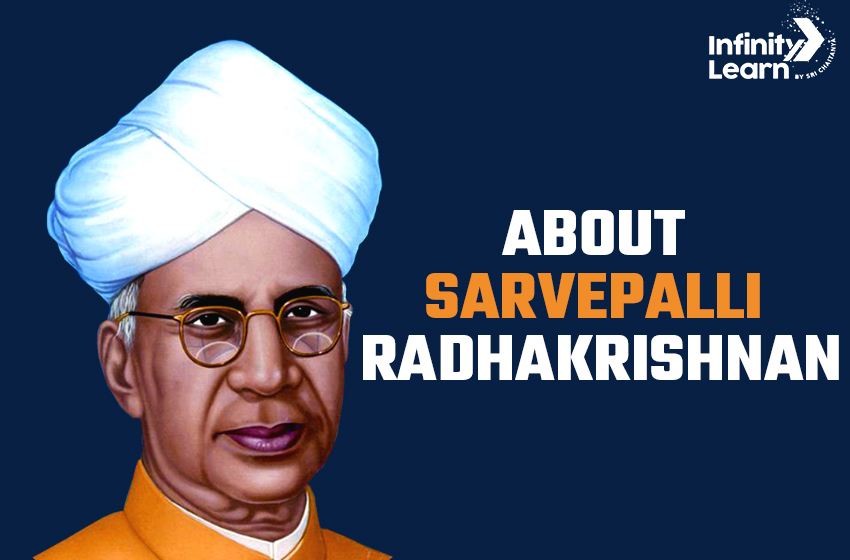Table of Contents
Sarvepalli Radhakrishnan, one of India’s greatest philosophers and statesmen, played a pivotal role in shaping modern India. Born on September 5, 1888, in Tiruttani, Tamil Nadu, he rose to prominence as the second President of India (1962-1967) and India’s first Vice President (1952-1962). His life journey from a small-town scholar to an international statesman exemplifies his dedication to education, philosophy, and national service.

Early Life of Sarvepalli Radhakrishnan
Radhakrishnan was born into a Telugu-speaking family in Tiruttani, part of the Madras Presidency. His childhood was shaped by the serene environment of Tiruttani and the holy city of Tirupati. Despite financial struggles, Radhakrishnan excelled academically, receiving scholarships that paved his way to higher education. His early schooling included:
- K.V. High School, Tiruttani
- Hermansburg Evangelical Lutheran Mission School, Tirupati
- Government High Secondary School, Walajapet
This modest upbringing laid the foundation for his lifelong pursuit of knowledge and excellence.
Education and Academic Journey
Sarvepalli Radhakrishnan’s academic achievements are remarkable. He graduated with honors in philosophy from the Madras Christian College in 1907 and earned his master’s degree in 1909. His choice of philosophy as a discipline was accidental, spurred by financial constraints and access to a cousin’s textbooks. However, this “accident” became a defining moment in his life.
Significant Academic Contributions:
- His bachelor’s thesis, “The Ethics of the Vedanta and its Metaphysical Presuppositions,” refuted claims that Vedanta lacked ethical principles.
- He became a professor of philosophy, teaching at Presidency College, University of Mysore, and later holding the prestigious Spalding Chair of Eastern Religion and Ethics at the University of Oxford.
- Authored seminal works like:
- The Philosophy of Rabindranath Tagore
- An Idealist View of Life
Radhakrishnan’s academic career wasn’t limited to teaching. He represented Indian universities at international forums, including the Congress of the Universities of the British Empire (1926) and the International Congress of Philosophy (1926).
Marriage and Family
At the age of 16, Radhakrishnan married Sivakamu, his distant cousin. Their marriage, which lasted 53 years, produced six children—five daughters and a son. Notable among them was Sarvepalli Gopal, a renowned historian. Sivakamu passed away in 1956, leaving behind a legacy of resilience and support for her illustrious husband.
Political Career of Sarvepalli Radhakrishnan
Radhakrishnan transitioned from academia to politics after India’s independence in 1947. His diplomatic and leadership roles included:
- Representing India at UNESCO (1946-1952).
- Serving as India’s Ambassador to the Soviet Union (1949-1952).
- Becoming the first Vice President of India in 1952 and later the second President in 1962.
Despite not being directly involved in the independence movement, Radhakrishnan’s contributions were driven by his pride in Indian culture and his mission to defend Hindu philosophy against Western misinterpretations.
Radhakrishnan’s Contributions to Philosophy
Radhakrishnan is celebrated as a champion of Advaita Vedanta, which he reinterpreted for a modern audience. He bridged the gap between Indian and Western philosophies by:
- Defending Hinduism against “uninformed Western criticism.”
- Emphasizing the universal and humanistic aspects of Indian philosophy.
- Advocating for dialogue between Eastern and Western intellectual traditions.
His philosophical works continue to influence scholars and spiritual thinkers worldwide.
Teachers’ Day: A Tribute to Educators
One of Radhakrishnan’s most enduring legacies is the establishment of Teachers’ Day in India. When his students sought to celebrate his birthday, he suggested observing it as a day to honor teachers. Since 1962, September 5 has been dedicated to recognizing the invaluable contributions of educators, inspired by Radhakrishnan’s belief that “teachers are the best minds of the nation.”
Awards and Honors
Radhakrishnan received numerous accolades during his lifetime, reflecting his stature as a global intellectual:
- Knighthood (1931): Recognized for his academic contributions.
- Bharat Ratna (1954): India’s highest civilian award.
- Order of Merit (1963): Honorary membership in the British Royal Order of Merit.
- Nominated for the Nobel Prize in Literature multiple times during the 1930s and 1960s.
Legacy and Impact
Radhakrishnan’s legacy is multifaceted, encompassing education, diplomacy, and philosophy. His work in bridging Indian and Western thought reshaped global perceptions of Hinduism. Additionally:
- He co-founded Helpage India, supporting underprivileged elderly populations.
- Advocated for unity and inclusivity in education and culture.
Conclusion
Sarvepalli Radhakrishnan’s life exemplifies the power of knowledge, humility, and cultural pride. From his humble beginnings to becoming India’s second President, he left an indelible mark on the nation’s history. His contributions to philosophy, education, and international diplomacy continue to inspire generations.
As the symbol of Indian academia, his vision of nurturing great minds remains central to India’s educational ethos. Teachers’ Day serves as a timeless reminder of his dedication to educators and their role in nation-building.
FAQs on Sarvepalli Radhakrishnan
Why is Sarvepalli Radhakrishnan famous?
He is renowned as a philosopher, the second President of India, and the inspiration behind Teachers' Day in India.
What were Radhakrishnan's contributions to philosophy?
Radhakrishnan reinterpreted Advaita Vedanta, defended Hinduism against Western criticism, and advocated for East-West dialogue in philosophy.
When was Sarvepalli Radhakrishnan born?
He was born on September 5, 1888, in Tiruttani, Tamil Nadu.
What awards did Radhakrishnan receive?
He was knighted in 1931, honored with the Bharat Ratna in 1954, and became a member of the British Royal Order of Merit in 1963.
Why is Teachers Day celebrated on September 5?
It marks Radhakrishnan’s birthday, commemorating his belief in the importance of educators in shaping the future of a nation.









